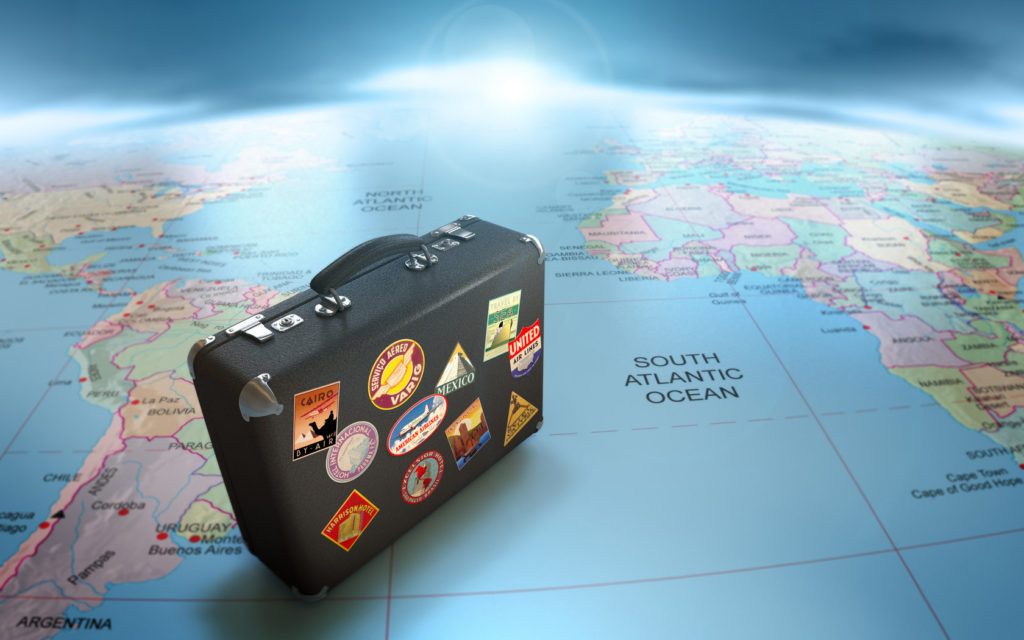Why Quit Your Job to Travel to South America?

Is something wrong at your job? Are you not happy in Chicago? How are you going to make money? What are you going to do for health insurance? What will you do after your trip? Why quit your job to travel?
These are all questions, and legitimate ones I might add, I have been asked after sharing the news that I will be quitting work to do an extended trip to South America. We can get into the answers to some of these questions later, but for now I thought it would be fitting for the first blog entry to explain a bit about why we are doing what we’re doing.
The old cliche of “tomorrow is never promised” is never more evident than it is in healthcare. I once had a 62 year old man recently diagnosed with colon cancer state, “I only had three years to go until I until my Social Security kicked in. I was going to spend time with my kids in Puerto Rico and see all the places I’ve been wanting to see all these years.” Molly has numerous stories of patients stating something similar. I am sure you know people in similar situations. So why work so intensely during what are typically your healthiest years to save up time and funds to take part in enjoyable activities decades from now when you are much more likely to be in a worse physical or mental state? This is a question we have repeatedly asked ourselves and after lots of reflection, have decided to act upon.
South America is somewhere I have wanted to visit since watching Gael García Bernal portray Che Guevara motorcycling around the continent in The Motorcycle Diaries my freshman year of college. The beauty of the continent, the diversity of landscape, climate and people are all things I have wanted to experience firsthand since. During a long conversation with Molly at a Chicago bar one Sunday afternoon shortly after meeting her, I learned that she had a similar desire to explore the continent.
Now seems like the perfect time. I have worked the past five years as a physician assistant in underserved medicine in west Chicago with a mostly Spanish speaking clientele. Grinding daily to improve the health of my patients yet witnessing little to no improvement in their health based largely on factors outside of my control (organizational push for providers to see more patients in less time, patients’ lack of insurance, transportation or financial resources to afford medications or healthy food, immigration and family issues), the burnout I was experiencing was real. Forcing myself not to care about my patients’ outcomes was eventually the only way I could get through my day. It was then that I knew I must do something else. So why not do something I have wanted to do for years as opposed to jumping back into another job my psyche was not yet prepared for? In addition, investigate further the cultures of many of my patients? I think I will.
Molly was at a similar spot in her work as an inpatient physical therapist. She had been at her first job for the past six years, and felt she needed a change. Her frustrations were mostly related to the many inadequacies of our healthcare system, which we will get into in more detail at a later date.
Unfortunately, American employment rarely affords those with wanderlust sufficient vacation time for extended travel. A typical “vacation” ranges from a long weekend sometimes up to two weeks. Those days usually involve racing from location to location, experiencing whatever is listed as “must sees” in the travel book, taking photos of the most recognizable images from the area only to post on social media to stoke envy in your friends and family before hopping back on a plane to head home. This is not the way to truly experience a place, so we intend to do it differently.
We plan to stay at each destination for at least one week in attempt to get a legitimate feel for what living in these places is actually like – to get to know the people, climate, cuisine and culture. If we really enjoy a place we plan to stay longer. We will potentially revisit places we really enjoy or did not get to fully explore toward the end of the trip, if time and finances allow. All of this requires flexibility, which can be tough in planning such a long trip. However, we feel this approach affords us the opportunity to take advantage of any recommendations we receive on places to visit from residents or travelers along the way, which often happens.
We plan to stay mostly in very affordable AirBnBs ideally with kitchenettes so that we can cook, which should cut down on costs. We also plan to do at least one farm stay through World Wide Opportunities on Organic Farms (WWOOF), where room and board are covered in exchange for work.
We are both looking forward to having the time to read, write, and explore interests in greater depth.
We look forward to sharing with you some of what we encounter along the way, hopefully allowing you to gain insight into yourself and the world around you in some meaningful way.